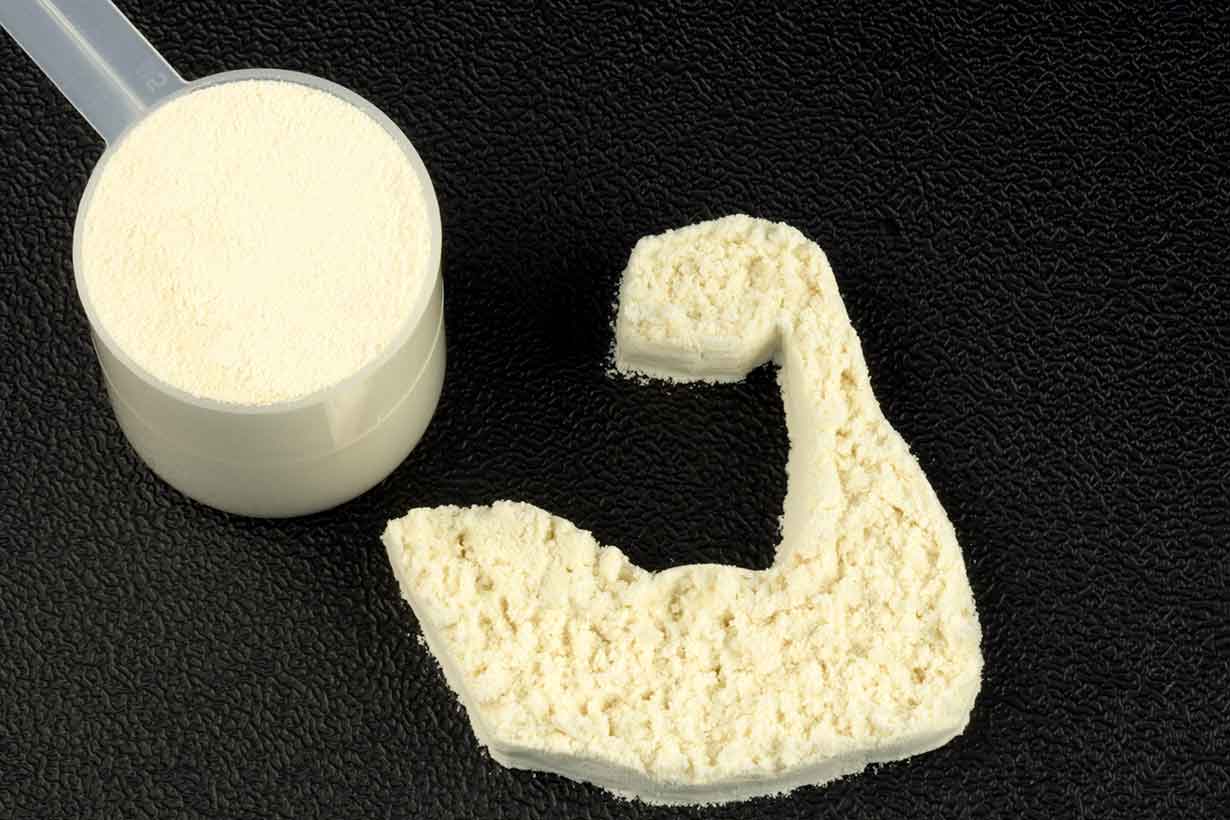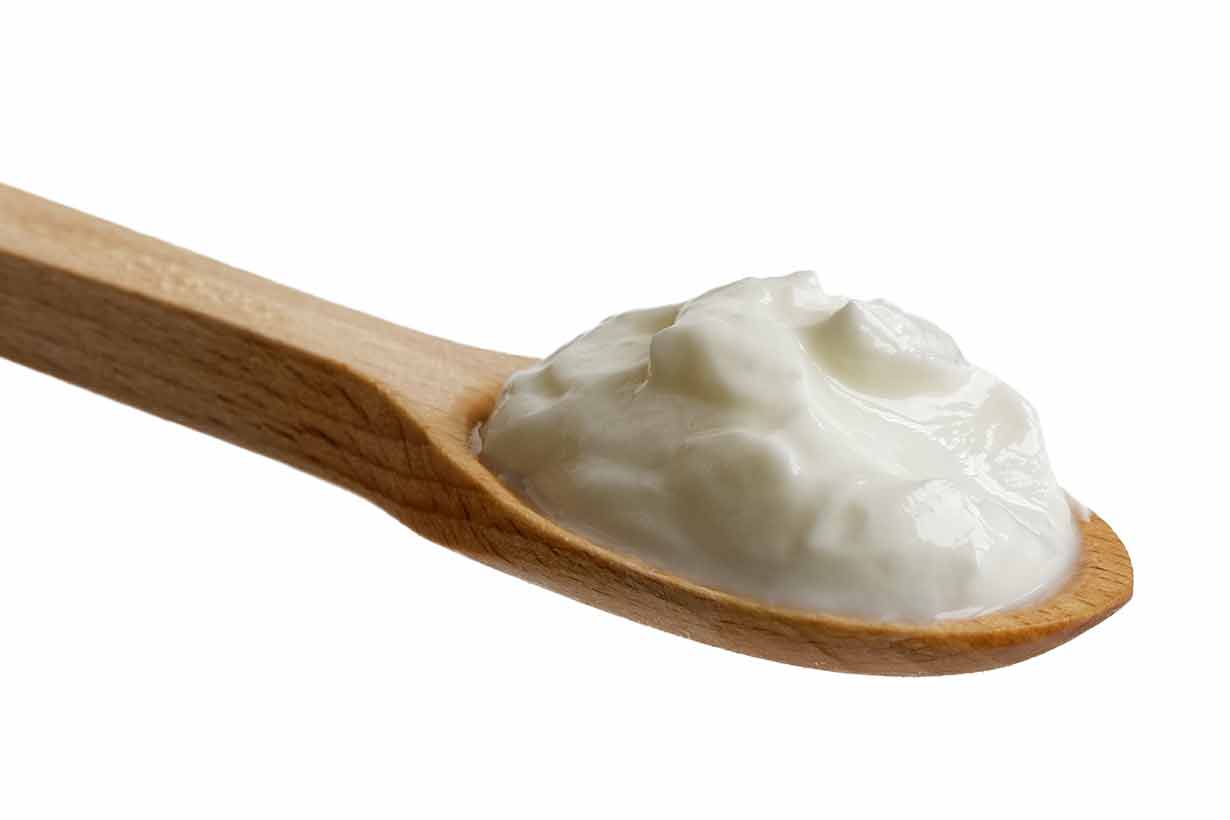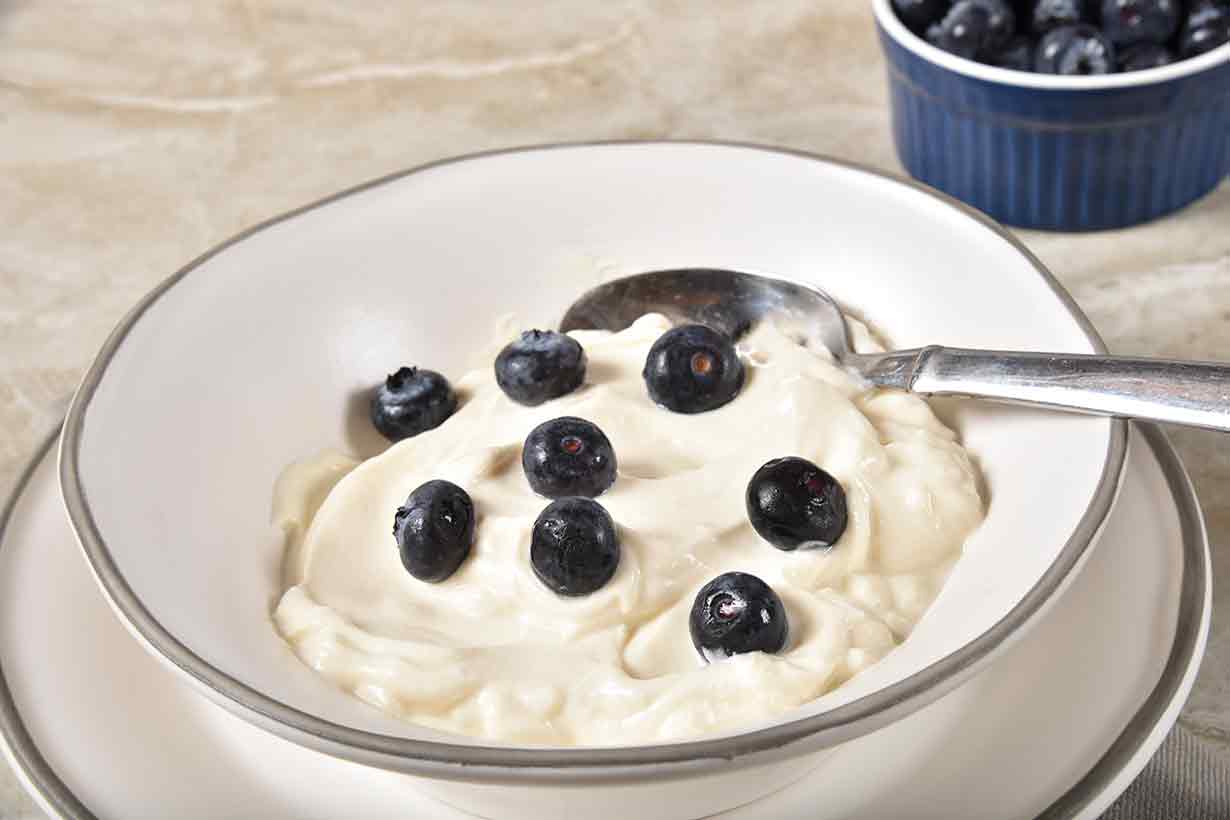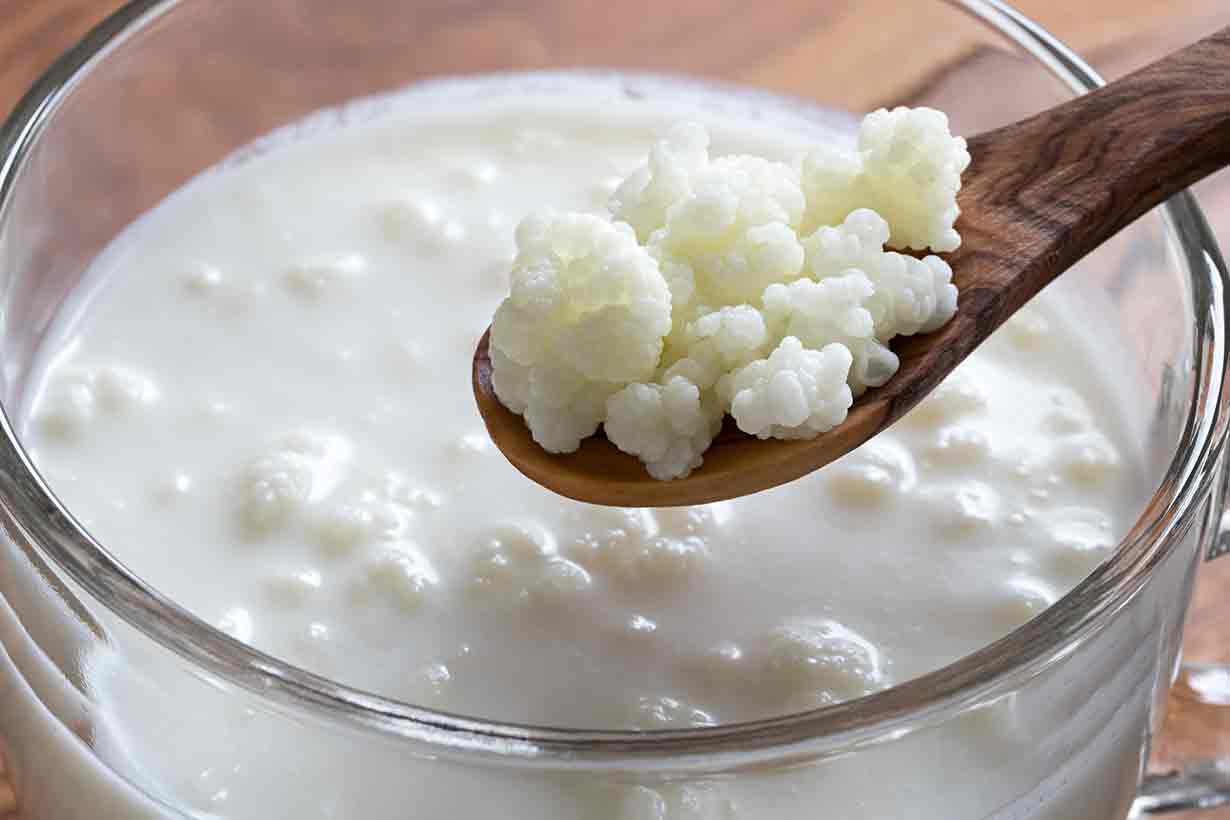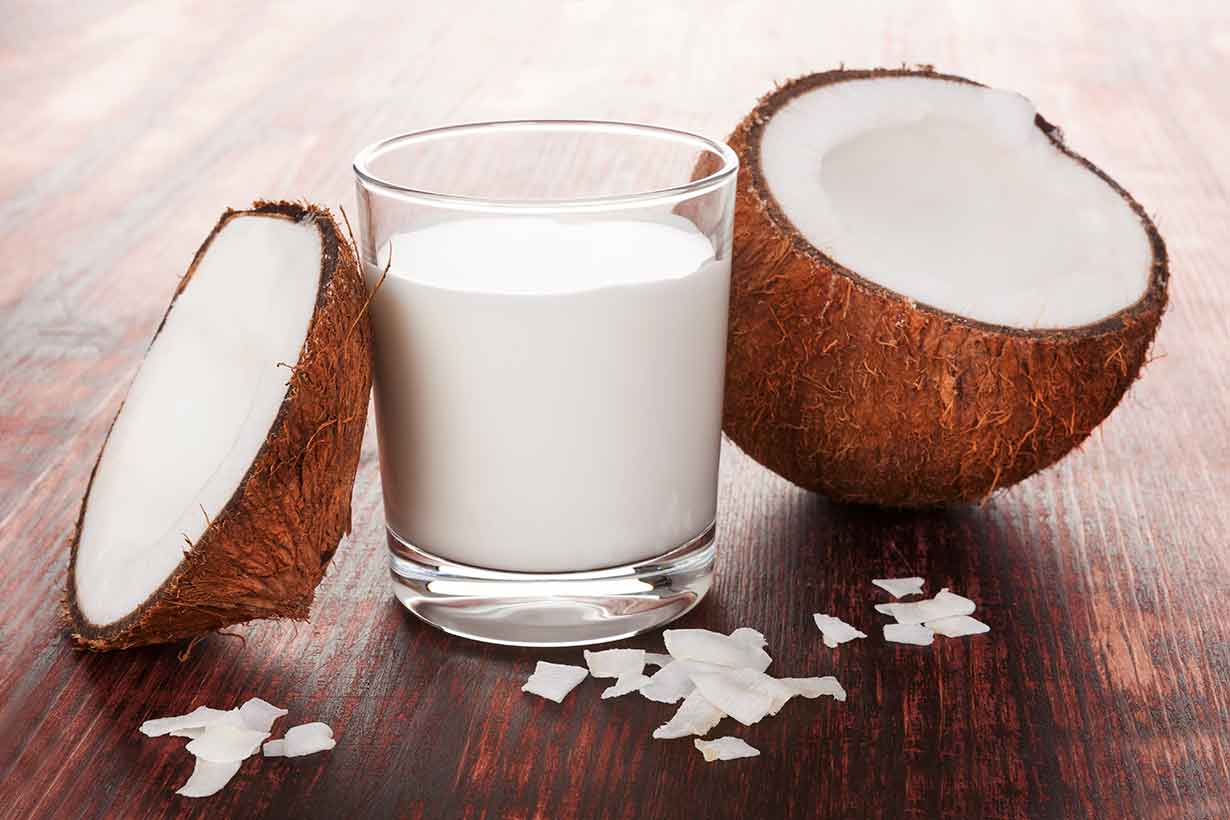Protein yogurt is similar to regular yogurt but provides significantly more protein.
It’s typically made from cultured low-fat or non-fat milk (e.g. strained low-fat Greek yogurt or skyr) and often enhanced with added dairy, pea, or soy protein.
This article provides a comprehensive guide to protein yogurt: its benefits, nutritional profile, who it might benefit, and more.
What advantages does it offer? Let’s find out.
Table of contents
Protein Yogurt Provides More Protein Than Regular Yogurt

The primary benefit of protein yogurt is the high protein content it offers.
For example, a 5.6-oz (159-gram) container of Yoplait Protein Yogurt Vanilla delivers 15.5 grams of protein—substantially more than regular yogurt provides (1).
Yoplait achieves this by using cultured, ultra-filtered nonfat milk: all the fat found in regular yogurt is removed while concentrating the protein.
Let’s illustrate how protein yogurts compare to regular yogurt. Below is a comparison of protein content in several popular yogurt products (1, 2, 3, 4, 5):
| Yogurt name | Protein Content |
|---|---|
| Yoplait Protein Yogurt (Vanilla) | 15.5 grams per 5.6 oz (159g) container |
| Ratio High Protein (Vanilla) | 25 grams of protein per 5.3 oz (150g) container |
| Oikos Protein Greek Yogurt | 20 grams of protein per 5.3 oz (150g) container |
| Plain yogurt (whole milk) | 5.9 grams of protein per 6 oz (170g) container |
| Plain yogurt (low fat milk) | 8.92 grams of protein per 6 oz (170g) container |
As the table shows, regular plain and low-fat yogurts contain significantly less protein than branded protein yogurts.
Yoplait protein yogurt’s 15.5 grams of protein comes from ultra-filtered nonfat milk (1). This is a similar protein content to nonfat versions of Greek yogurt.
Ratio and Oikos protein yogurts, with 25 grams and 20 grams of protein respectively, increase their total protein by adding whey protein concentrate (2, 3).
Protein Yogurt Is Often An Excellent Source of Calcium
A common misconception is that ‘high-protein’ products are mainly just protein. In reality, many such products—including protein powders like whey—are an underrated source of vitamins and minerals.
Like all dairy-based yogurts, protein yogurts typically provide high levels of calcium.
For instance, a single 5.6 oz (159g) container of Yoplait protein yogurt provides 429 mg of calcium, which equals 33% of the daily value (1, 6).
One potential exception to this ‘high calcium’ benefit is vegan-friendly protein yogurts. The calcium content of such products will depend on fortification (7, 8).
To assess the calcium content of a specific brand, always check the product’s nutrition facts label.
Protein Yogurt Is High in Protein and Low in Calories
Another big benefit of protein yogurt is its protein density. In other words, it delivers high levels of protein while still being a low-calorie option.
Since protein yogurt is low in carbohydrates and fat, it provides a modest amont of calories. A 5.6 oz (159g) single container provides 15.5 grams of protein for fewer than 100 calories (1).
High-protein products like protein yogurt have an advantage over many other protein sources in this regard.
For example, foods such as legumes and fatty cuts of meat are high in protein but also relatively high in calories due to their high carbohydrate or fat content.
Who Might Benefit From Protein Yogurt?
Low-calorie, high-protein foods like protein yogurt are often an excellent choice for:
- Athletes: Protein-dense options let athletes increase their protein intake without adding an excessive amount of calories. This can help athletes gain or maintain muscle without unwanted weight gain.
- Dieters: Protein-rich, lower-calorie foods can enhance satiety (the feeling of fullness after eating), which can make weight loss easier. A 2020 systematic review of 49 randomized controlled trials on the short-term effects of protein found that it reduced hunger hormones and suppressed appetite (9). Additionally, a human trial showed that consuming high-protein yogurt as an afternoon snack lowered appetite and delayed subsequent eating compared to lower protein snacks (10).
- Older adults: As we age, protein needs increase to help prevent sarcopenia (muscle loss) (11). Protein yogurt is a simple dietary addition that can boost total protein intake.
- Resistance-trained individuals: People who strength train may have higher protein needs for recovery and muscular growth. Protein yogurt could be used as a convenient post-workout snack.
- Anyone with an active lifestyle: Getting enough protein can sometimes be hard when you’re always on the go. Protein yogurts are a convenient and highly portable option.
The Nutritional Profile of Protein Yogurt
Currently, the USDA FoodData Central database lacks a complete entry for protein yogurt with all nutritional values.
However, it provides a basic nutritional profile for Yoplait’s vanilla-flavored protein yogurt.
Here is the nutritional profile for Yoplait protein vanilla yogurt per 5.6 oz (159g) container (1):
- Calories: 96 kcal
- Carbohydrate: 4.88 g
- Fiber: 0 g
- Sugars: 3.34 g
- Fat: 1.61 g
- Saturated fat: 0.94 g
- Protein: 15.5 g
- Cholesterol: 14.2 mg
Vitamins and Minerals
- Calcium: 429 mg (33% DV)
- Vitamin D: 2.23 mcg (11% DV)
- Potassium: 180 mg (4% DV)
- Sodium: 47.9 mg (2% DV)
- Iron: 0.22 mg (1% DV)
Although not listed, the primary ingredient of Yoplait’s protein yogurt is nonfat milk. This suggests it also contains appreciable amounts of several other vitamins and minerals, notably phosphorus, riboflavin (B2), and vitamin B12 (12).
However, this is just one example of a protein yogurt.
Nutritional values vary by brand and ingredient profile. Some products offer a higher amount of protein due to being enhanced with added protein.
Frequently Asked Questions
Here are some the answers to some common questions people may have about protein yogurts.
Both ‘high-protein’ and regular yogurts can be a healthful addition to the diet. However, one option may be more suited than the other dependent on dietary goals. Those aiming to increase their protein intake may benefit from choosing a protein yogurt.
High-protein, low-calorie products can be beneficial for weight loss due to beneficial effects on enhancing satiety (9, 13). That said, sustained weight loss depends on the overall dietary pattern and the presence of a calorie deficit—consuming fewer calories than you burn each day.
As part of a balanced diet, protein yogurt can be a daily staple.
Some protein yogurts contain only nonfat milk. In contrast, others may add whey protein concentrate like Ratio and Oikos products do (2, 3). Plant-based yogurt products—such as Siggi’s—typically use soy or pea protein (14).
Yes, they are made with cultured milk, providing probiotic content benefits similar to regular yogurt. Yoplait’s protein yogurt follows the same traditional fermentation process as their regular yogurt (15). These probiotics can help to improve gut health (16).
For a high-protein, low-calorie option, ideally look for approximately 10 grams of protein or more per 100 grams and fewer than 100 calories, with a low amount of added sugars.
Yes, there are several protein yogurts for individuals following a vegan diet. Forager, Kite Hill, Ripple, and Siggi’s offer vegan-friendly protein yogurts. Ingredients and nutritional values vary by brand.
People with allergies to milk, pea protein, or soy should check the ingredients label carefully. Additionally, some flavored options may container sweeteners. While the specific sweeteners used will vary, people with phenylketonuria should avoid products containing aspartame. Phenylketonuria is a genetic disease characterized by an inability to break down phenylalanine, an amino acid contained in aspartame (17).
Summary
Similar to regular yogurt, protein yogurt is an excellent source of protein, calcium, and probiotics.
While it can cost more than regular yogurt, it offers higher protein content for relatively few calories.
For individuals seeking to increase their protein intake, protein yogurts are a beneficial option worth exploring.


